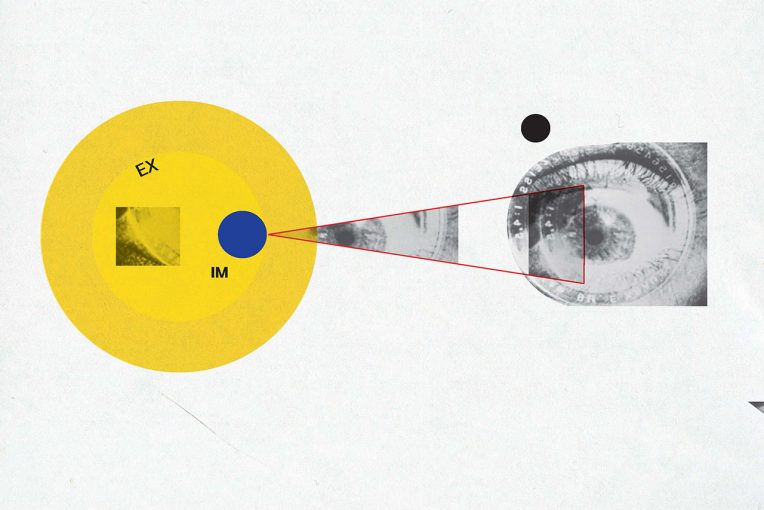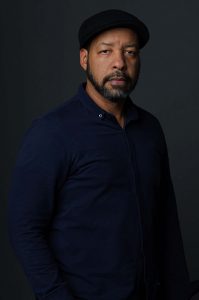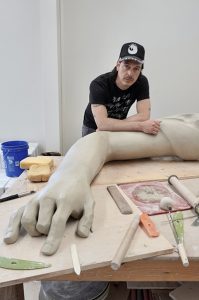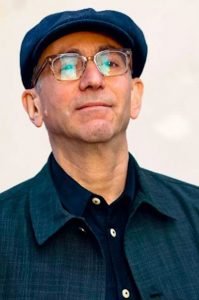The 2020-21 Experiencing Images: How the Visual Shapes Our World virtual speaker series will feature six distinguished speakers who explore individual and collective engagement with photography, a medium that defines visual culture. The virtual lectures will take place via Zoom and are free and open to the public.
Through decoding this visual landscape, we become conscious of how we use images to construct identity and meaning. The lectures in this series will address themes including photography exhibitions and civic spectatorship, surveillance and the construction of race, image production and representation, and trauma and memory.
Spring Speakers
Monday, January 31 at 6 p.m. CST
“On the Matter of Subject: What We Photograph Matters” with Cecil McDonald Jr.
Registration required: https://bit.ly/3fdPIsY
Employing still and moving images, this talk will explore how the image and the image-maker shape our understanding of each other and the world we inhabit. The image-maker has a responsibility to the subject matter and the proliferation of the images they create.
Cecil McDonald Jr. uses photography, video, and text to explore the intersections of masculinity, familial relations, and the artistic and intellectual pursuits of black culture. McDonald studied fashion, house music, and dance club culture before receiving a MFA in Photography at Columbia College Chicago, where he currently serves as an adjunct professor. His work has been exhibited both nationally and internationally with works in the permanent collection of the Cleveland Museum of Art, Chicago Bank of America LaSalle Collection, and the Northwestern Pritzker School of Law. He was awarded the: Joyce Foundation Midwest Voices & Visions Award, the Artadia Award, the Swiss Benevolent Society residency in Lucerne, and the 3Arts Teaching Artist Award. In The Company of Black, his first comprehensive monograph was published by Candor Arts and was short listed for first photographic book of the year by the Aperture Foundation and Paris Photo.
Thursday, February 24 at 6 p.m. CST
“Future Ancestral Technologies: How will we dream of our collective future?” with Cannupa Hanska Luger
Registration required: https://bit.ly/31Hqiks
Science fiction has the power to shape collective thinking and serves as a vehicle to imagine the future on a global scale. Cannupa Hanska Luger’s Future Ancestral Technologies is Indigenous science fiction. It is a methodology, a practice, a way of future dreaming, rooted in a continuum. Through installation, video, and land-based work, the series develops an ongoing narrative in which Indigenous people develop sustainable, migration based technology to live nomadically in hyper-attunement to land and water. Within the limitless time jumps of Future Ancestral Technologies, Luger challenges our collective thinking to imagine a post-capitalist, post-colonial future where humans restore their bonds with the earth and each other, and the artist asks us to consider how we will dream of our collective future. Luger reclaims and recontextualizes the technology of his ancestors by placing the past and the future in dialog to demonstrate the interconnected relationships between human beings and the land.
Cannupa Hanska Luger is a multidisciplinary artist and an enrolled member of the Three Affiliated Tribes of Fort Berthold (Mandan, Hidatsa, Arikara, Lakota and European descent). Through monumental installations and social collaboration, Luger activates speculative fiction and communicates stories about 21st Century Indigeneity, combining critical cultural analysis with dedication and respect for the diverse materials, environments, and communities he engages. He lectures and produces large-scale projects around the globe and his works are in many public collections. Luger is a recipient of a 2021 United States Artists Fellowship Award for Craft and was named a 2021 GRIST Fixer. He is a 2020 Creative Capital Fellow, a 2020 Smithsonian Artist Research Fellow, and the recipient of the Museum of Arts and Design’s 2018 inaugural Burke Prize, among others.
Additional events in this series will be updated as details are available.
- Wednesday, March 16 at 6 p.m. CST with Katilin Murphy
- April (date to be announced) with D.W. Pine
- Date to be announced – Panel Discussion with Illinois State University faculty
Past Speakers
Thursday, October 21 at 6 p.m. CST
“White Sight: Visual Politics of Whiteness” with Nicholas Mirzoeff
To adapt Simone de Beauvoir, one is not born but becomes white. This talk engages the persistence and continued force of white ways of seeing and making white space. Combined, these form what Mirzoeff calls “white sight.” To be white has been imagined as the apex of the supposed pyramid of the human. That is a powerful place from which to see, survey and conduct surveillance, the key practices of white sight. It is a system that has a material infrastructure, connecting ways of seeing and making space and the apparatus of government. Its material forms connect, distribute, enable, and store the set of desires and fantasies that comprise what it is to make whiteness. This talk examines how these systems work and how they might be unbuilt.
Nicholas Mirzoeff is a writer and professor of Media, Culture and Communication at New York University. He is a visual activist, working at the intersection of politics, race, and global/visual culture. Mirzoeff is a 2020-2021 ACLS/Mellon Scholar and Society fellow in residence at the Magnum Foundation, New York.
Read more about Nicholas Mirzoeff.
Thursday, September 23, 2021
“A Museum Without Walls: Photo Exhibitions and Civic Spectatorship” with John Lucaites
The landscape for the theory and practice of photography is changing. Robert Hariman and John Lucaites address this in The Public Image (Chicago, 2017) by arguing for an interpretive realism that would encourage the treatment of photography as a public art in support of an ethics of civic spectatorship. In his presentation, Lucaites develops that argument by drawing upon Andre Malraux’s notion of “a museum without walls” as a lens through which to examine the contemporary display of photo exhibitions as they contribute to a democratic politics.
John Louis Lucaites is a professor emeritus rhetoric and English at Indiana University, Bloomington, Indiana. His most recent publications focus on the relationship between judgment, visuality, and public culture, including No Caption Needed: Iconic Photographs, Public Culture, and Liberal Democracy; The Public Image: Photography and Civic Spectatorship (both co-authored with Robert Hariman, U. of Chicago Press, 2016); and In/Visible War: The Culture of War in Twenty-First-Century America (co-edited with Jon Simons, Rutgers U. Press, 2017). He is also the co-author (with Celeste Michelle Condit) of Crafting Equality: America’s Anglo-African Word (Chicago, 1993). He is the senior editor for a book series on Rhetoric, Culture, and Social Critique for the University of Alabama Press. He served as the Associate Dean for Arts and Humanities in the College of Arts and Sciences at Indiana University. He has received numerous awards including the National Communication Association’s Distinguished Scholar Award in 2012.
The series is curated by Holly Filsinger, graduate student in Visual Culture. The series is hosted by Illinois State University Wonsook Kim School of Art and is supported and co-sponsored by the Office of Research and Graduate Studies, University Galleries of Illinois State University, the School of Communication, the Department of English, the Department of History, the Department of Sociology and Anthropology, the Women’s, Gender, and Sexuality Studies Program.
If you need a special accommodation to fully participate in this program/event, please contact hefilsi@ilstu.edu. Please allow sufficient time to arrange the accommodation.





